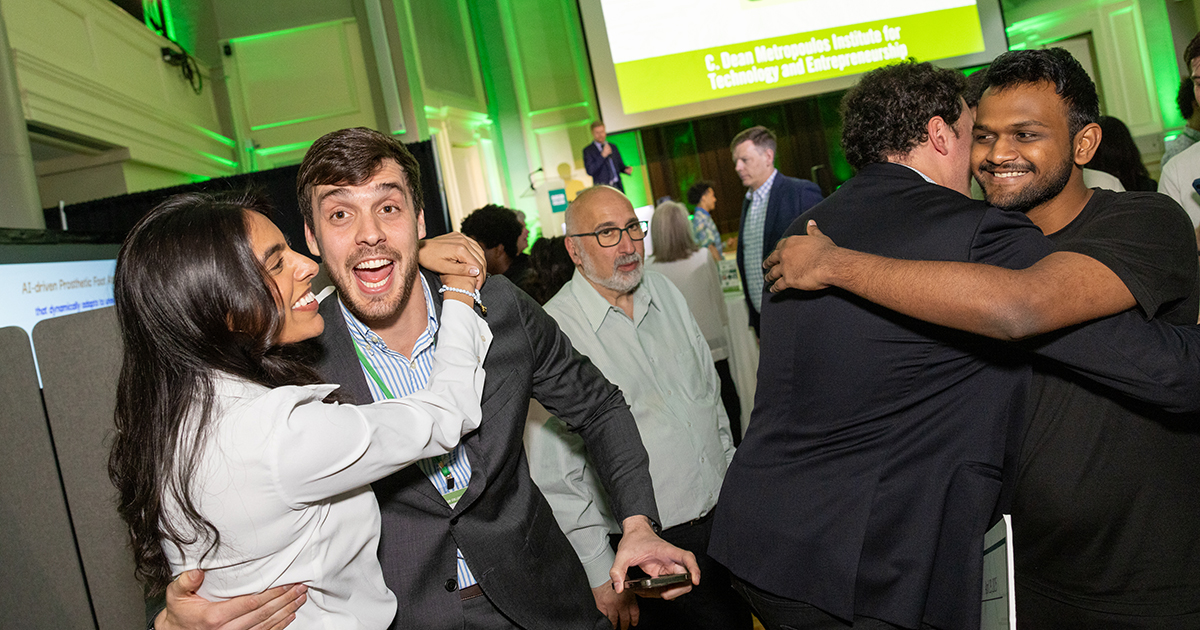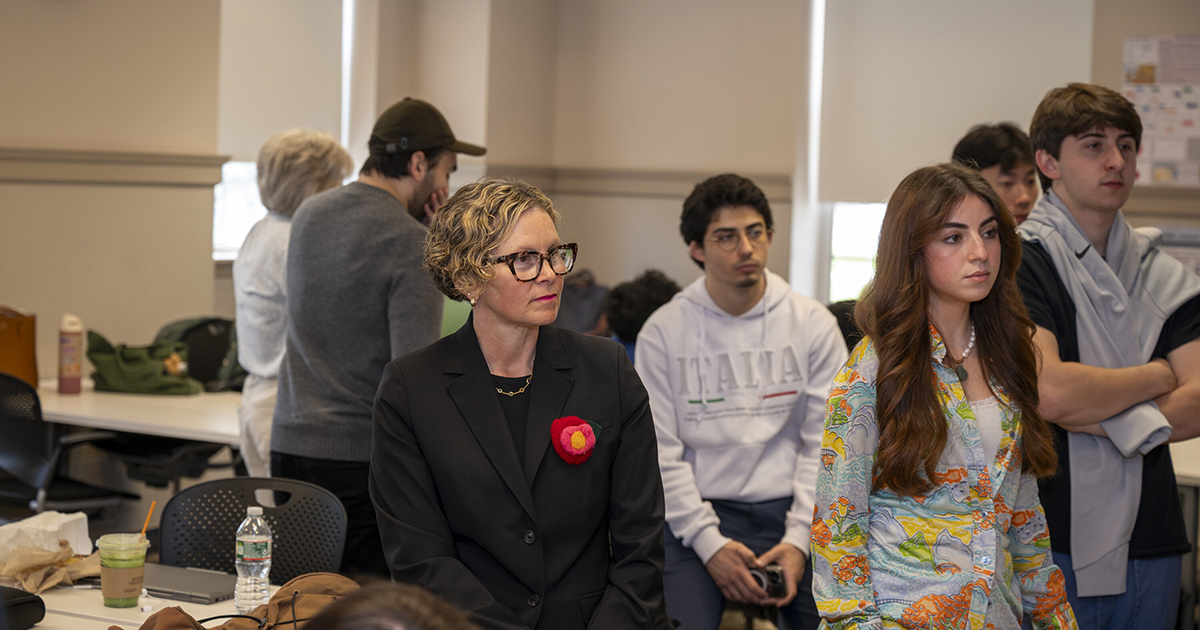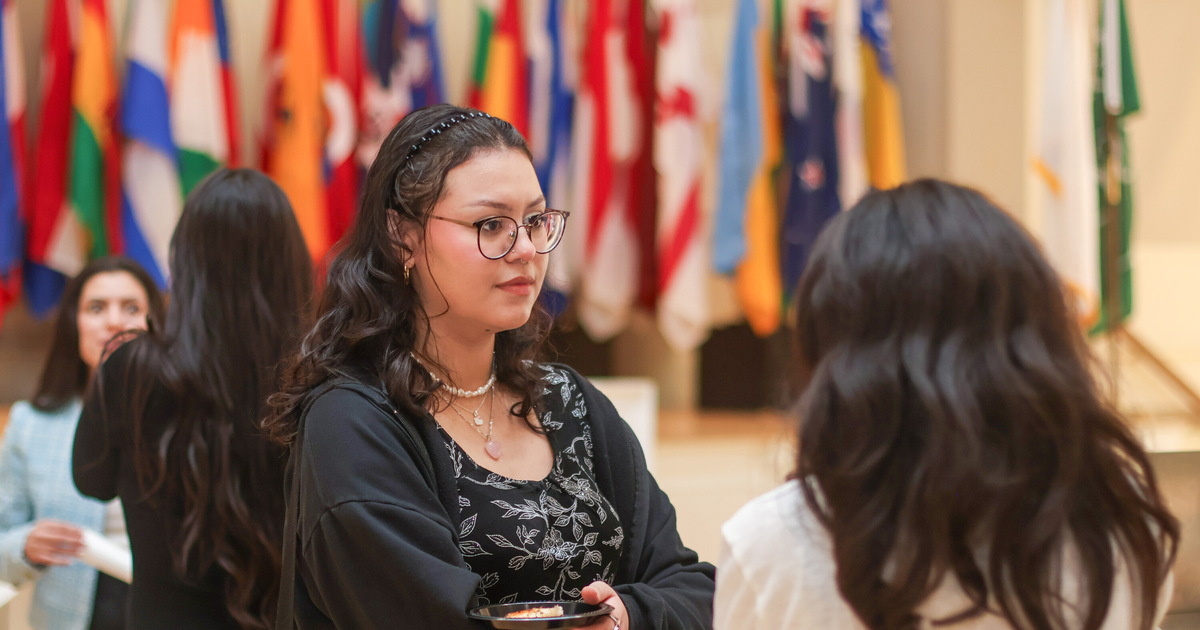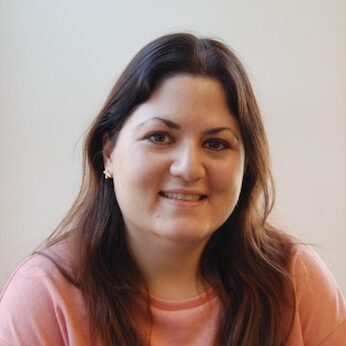Bringing Entrepreneurship Education to an Indian Orphanage
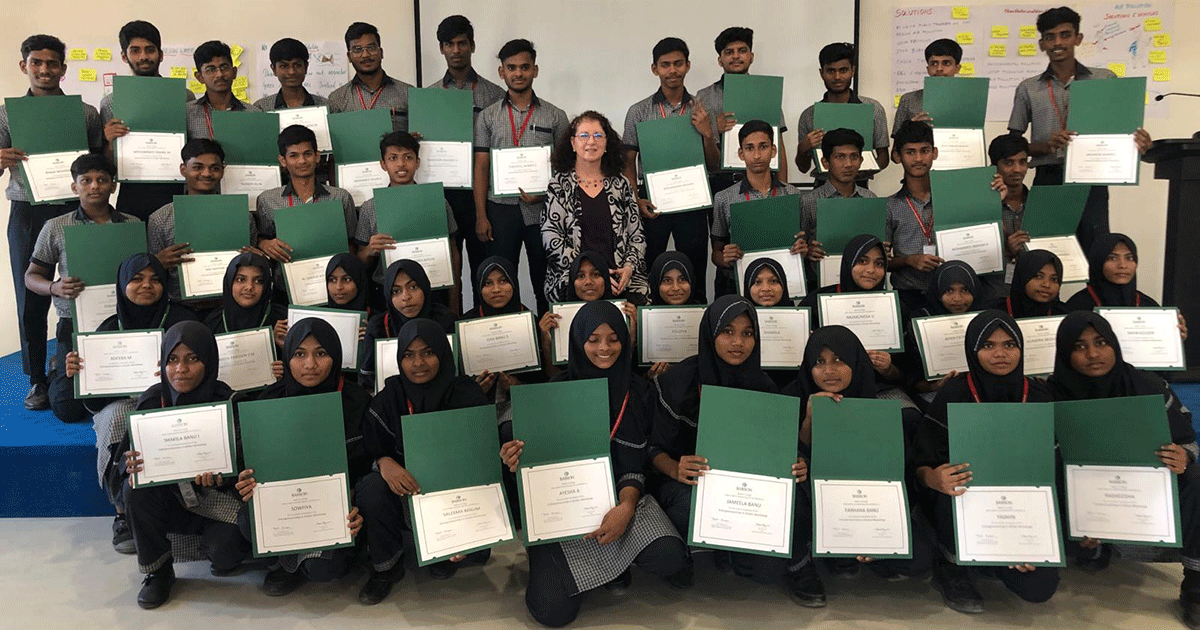
The orphanage isn’t what one might expect.
The orphans and homeless children who reside there certainly have lived challenging lives, but the orphanage, which is in Chennai, India, is also a school that’s committed to their well-being and education. Babson’s Beth Goldstein came there last month to teach an entrepreneurship program. She found a place full of energy and activity.
“Students are happy. You see the looks on their faces,” says Goldstein, senior director of academic strategy of the Youth Impact Lab, a program of the Babson Academy, which seeks to empower entrepreneurship education. “It was an inspiring place to be. You didn’t feel sadness. You felt hope.”
Goldstein came to the Anjuman Orphanage School after attending the annual global summit of the academy’s Babson Collaborative. That summit, which brought together entrepreneurship educators from around the world, was held in Mumbai, and once it was over, Goldstein took a flight from Mumbai in the west of India to Chennai in the east.
At the Anjuman Orphanage School, an institution more than 130 years old that serves the impoverished children of the Muslim community, Goldstein worked with students one day and with teachers for another day. Both groups were influenced by the entrepreneurial training, which exposed them not only to new ways of thinking but also to new ways of teaching. “We were able to make an impact in two days,” Goldstein says.
The program at the orphanage school was made possible by a generous donation from a Babson alumnus, Iqbal Mecca ’91, his two brothers, and their family’s Farida Foundation. Goldstein took time to share a few reflections on the importance of that gift and on what entrepreneurial education can mean for both the students and teachers that she met.
Entrepreneurs and Changemakers
About 800 students, from kindergarten through high school, reside at the Anjuman Orphanage School. For the entrepreneurial training, entitled Youth Entrepreneurship in Action, Goldstein worked with 40 students ages 14 to 18.
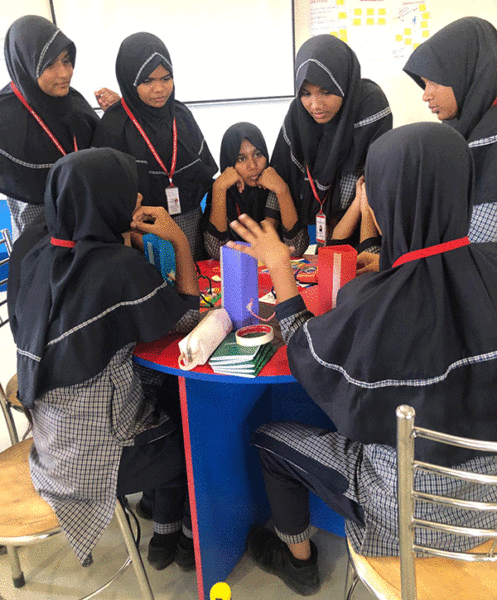
The program helps students understand what thinking and acting like an entrepreneur means, and at first, students seemed hung up on what exactly an entrepreneur is. As she began, Goldstein asked students to raise their hand if they’re an entrepreneur.
“You could hear a pin drop,” recalls Goldstein, who also serves as faculty director of the Summer Study and Certificate in Youth Entrepreneurship Education programs at the Babson Academy and assists with the College’s Venturing Out Prison Education Initiative.
At the orphanage school, Goldstein focused on showing how students have the power to make change in their communities, so when she later asked the students if they were changemakers, hands went up. The teachers had a similar hesitation about identifying as entrepreneurs, thinking those were only people who start a business, but they embraced being called changemakers as well.
“You saw the students evolve their mindset. You saw the teachers evolve,” Goldstein says. “We are all changemakers. Educators are the quintessential changemakers.”
A New Way of Learning
The entrepreneurship program is taught in an engaging, conversational, give-and-take style with students. At the orphanage school, however, students were used to their teachers simply lecturing without much interaction with the class. “Most of them are used to a teacher-centric style of education,” Goldstein says. “That is the opposite of how we teach at Babson and how you teach entrepreneurship.”
At first, students were quiet, but they warmed up as time passed. A turning point came when they were tasked with developing a solution to a societal challenge. “They were engaged. They lit up,” Goldstein says. “They went from saying absolutely nothing to being as engaged as our Babson students.”
A New Way of Teaching
Goldstein’s student-centric style was also an adjustment for the orphanage school’s teachers. After all, they were used to lecturing and having total control over what happens in the classroom. “It’s hard for the teacher to give that up,” Goldstein says. “Changing behaviors is hard to do.”
On the first day of the program, as Goldstein taught the students, 20 teachers were also in the classroom and seeing what was happening. They witnessed the students become comfortable talking and presenting in class. They watched as the students’ confidence grew. “They see they can be more effective educators by relinquishing some control over the classroom experience,” Goldstein says. “They’re seeing me model it all day, and they see it works.”
“They were engaged. They lit up. They went from saying absolutely nothing to being as engaged as our Babson students.”
Beth Goldstein, senior director of academic strategy of the Babson Academy's Youth Impact Lab
A Gift of Babson
Goldstein praised the gift from Iqbal Mecca and his two brothers, Ash and Irshad, that made the program at the orphanage school possible. The brothers’ family foundation has a focus on education, and their gift brought a piece of the Babson spirit to their community. “They wanted to bring entrepreneurship education to the orphans at the school,” Goldstein says.
The Babson Academy does a lot of work with private schools, but the gift from the Mecca brothers enabled the organization to broaden its reach. “We want to bring Entrepreneurial Thought & Action® to the world,” Goldstein says, “for the advantaged as well as disadvantaged communities.”
At the orphanage school, a place far from privileged, Goldstein’s efforts were transformative. Shahnaz Gulrez, the convenor at the institution, said the program “made us understand the true meaning and value of seeing ourselves as entrepreneurial changemakers.”
Posted in Entrepreneurial Leadership

